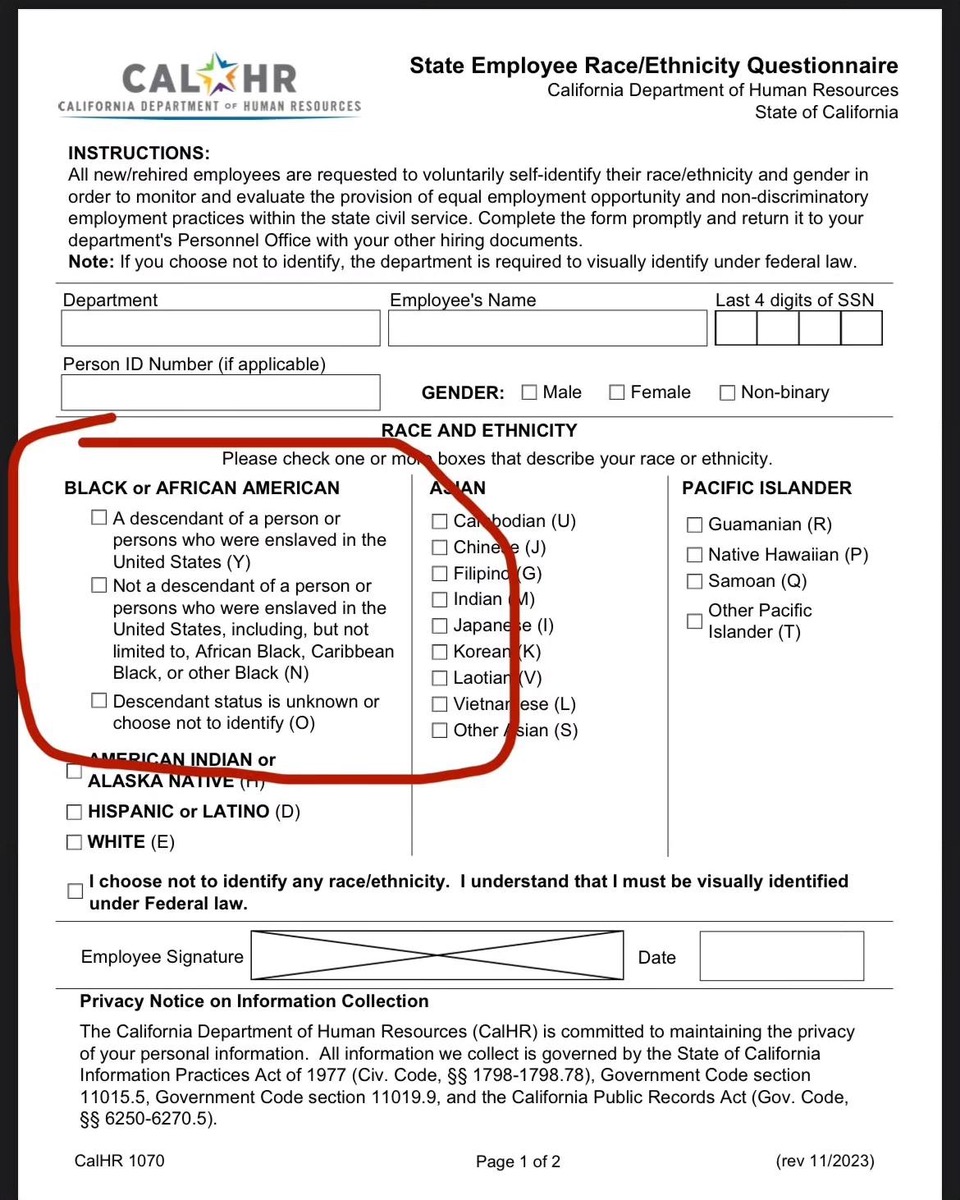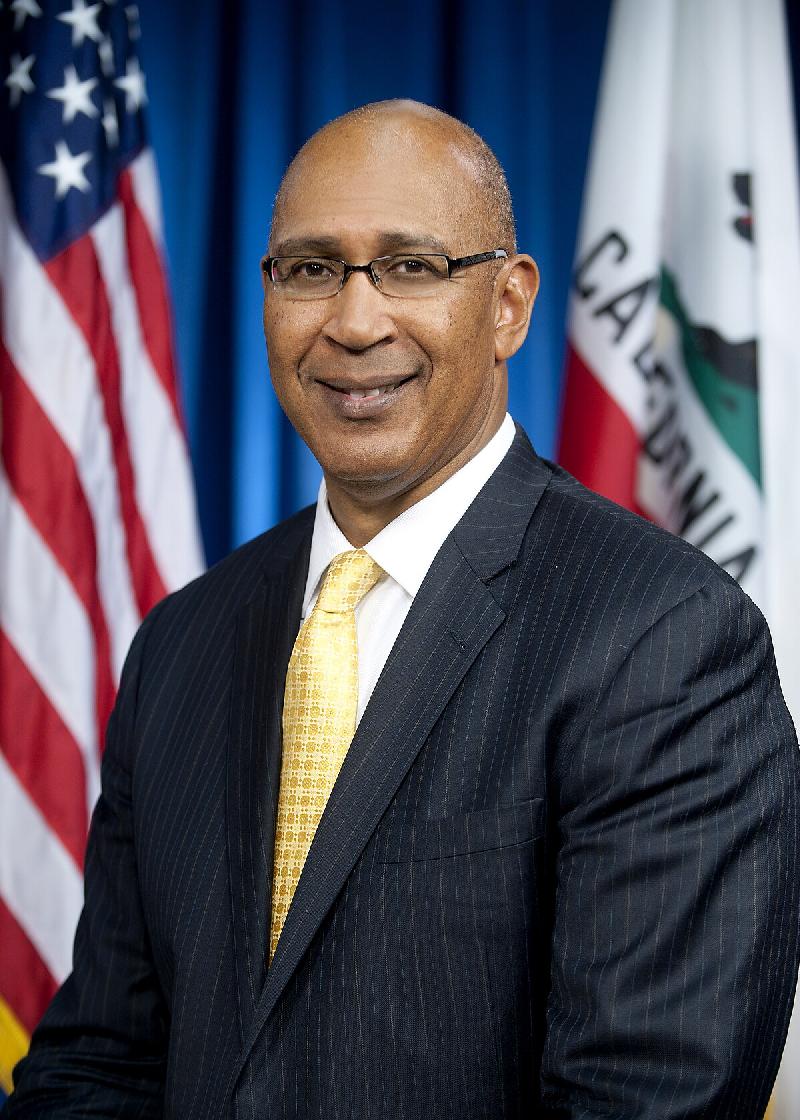
*As of Jan. 1, California became the first state in the nation to disaggregate data for its Black population by ethnic lineage. Thanks to a bill authored by Assemblymember Chris Holden (D-Pasadena).
Holden is a member of the California Legislative Black Caucus.
A California Department of Human Resource (CalHR) questionnaire requests newly or rehired employees to voluntarily self-identify their race, ethnicity and gender for the state to track and evaluate equal employment opportunities and non-discriminatory employment practices more accurately.
“For the first time, the descendants of our ancestors, people in my family and the families of over 2 million Californians, the overwhelming majority of Black California, will see our community represented and counted among the very important data our state collects, starting among current and future state employees,” said Chris Lodgson, a member of Coalition for Just and Equitable (CJEC).
CJEC is a statewide organization comprised of various associations, community groups, and individuals united by a commitment to fight for reparations and reparative justice for descendants of enslaved Black American men and women.

Applicants now have the option to check boxes under Black or African American that declare them a descendent of persons who were enslaved in the United States, or not a descendant of persons who were enslaved in the United States, including African Black and Caribbean Black. They can also identify by marking “descendant status is unknown” or they can choose not to identify.
Holden introduced Assembly Bill (AB) 1604, the Upward Mobility Act in January 2022. The legislation requires the state to breakdown the data of state employees by ethnic origin.
Furthermore, AB 1604, signed by Gov. Gavin Newsom in September 2022, provides state workers with greater opportunity to move upward within state service through improvements and best practices in processes for hiring, recruiting and retaining a diverse workforce.
The new disaggregation mandate is designed to help spot irregularities such as disparities in income, health care outcomes, career development and state agencies’ leadership.
Holden had previously pushed legislation to promote mobility for people of color in California’s civil services system and require diversity on state boards and commissions. Newsom vetoed AB 105 in October 2021, the legislative forerunner to AB 1604, which Holden also introduced.
Newsom said in an October 2021 letter that AB 105 had “unintended consequences” and “elements of the bill conflict with existing constitutional requirements, labor agreements, and current data collection efforts.”
When Holden was appointed chair of the Assembly Committee on Appropriations in January 2022 by then-Assembly Speaker Anthony Rendon (D-Lakewood), he reintroduced the legislation as AB 1604.
AB 1604 resembles legislation that requires data from other racial groups. In September 2016, former Gov. Jerry Brown signed AB 1726 into law, requiring the state Department of Public Health to disaggregate data it collects by ethnicity or ancestry for Native Hawaiian, Asian, and Pacific Islander.
The question of identity became front-and-center in state government decision-making when the California Reparations Task Force elected a lineage-based framework to determine eligibility for reparations. The nine-member panel decided that compensation should be limited to descendants of enslaved or free Black people whose ancestors were in the United States by the end of the 19th century.
That narrow 5-4 task force decision overrode a model for determining eligibility that is race-based.
Lodgson said that he believes the lineage-based arrangement will help Black Americans self-identify with their heritage in this country on the heels of Black History Month.
In August 2023, Sen. Steven Bradford (D-Gardena) introduced Senate Bill (SB) 490 that would amend Title 2 of the state government code to establish a new state agency called the California American Freedman Affairs Agency (CAAFAA).
That agency would be responsible for managing the reparations process for Black Californians and determining eligibility under the lineage-based structure set up by the state’s reparations task force.
“The first in the nation California Reparations Task Force re-affirmed the intent of the law that created it when it said descendants of persons enslaved in the U.S. would be the community eligible for Reparations,” Lodgson said. “The next step would be to collect information on which Californians are within this community and set up a way for the state to help people show that they’re eligible.”
According to a May 14, 2021, Pew Research Center report, Black and Hispanic adults were more likely than White adults to say their origins are central to their identity and that they feel a strong connection to their family’s cultural roots.
On Jan. 18, 2024, PEW released data that the Black population in the U.S. has grown by 32% since 2000, rising from 36.2 million then to 47.9 million in 2022. In addition, the number of people self-identifying as another race in addition to Black has increased nearly 254% since 2000.
In 2022, there were 5.1 million Black immigrants in the U.S., up from 2.4 million in 2000, according to PEW’s analysis of Census Bureau data. Immigrants accounted for 11% of the Black population in 2022, up from 7% in 2000.
Race-based reparations would have stretched the eligibility pool for reparations to include anyone in California who identifies as Black as opposed to Californians with a direct connection to a person who was enslaved in the United States.
According to the California Department of Finance’s July 2023 report, just over 39 million people reside in California. The Black/African American populations consist of 2,223,654 people (5.64%) in California. With a growing Black immigrant population across the country, Lodgson said that the disaggregated data being collected in California can serve as a model for the rest of the country.
“This historic change is the result of the hard work of Black Americans, all volunteers, who come from outside of politics and yet were able to make something big happen,” Lodgson said.
“This is a testament to what each of us can do. Just as important as anything else, as one of my colleagues recently shared, you can’t fix a problem if you don’t see a problem.”
MORE NEWS ON EURWEB: New Data Shows Black People Still Killed by Police at a Higher Rate
We Publish News 24/7. Don’t Miss A Story. Click HERE to SUBSCRIBE to Our Newsletter Now!






